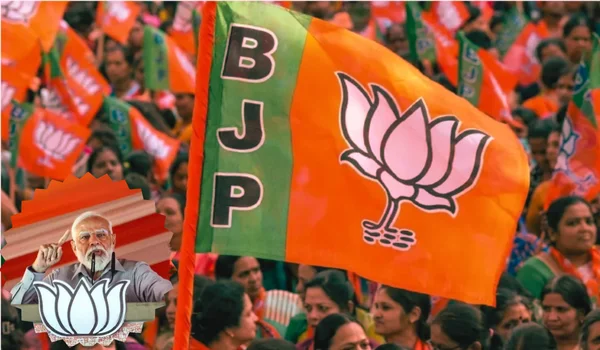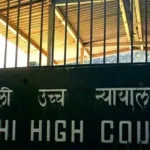In a historic political shift, Prime Minister Narendra Modi’s Bharatiya Janata Party (BJP) has secured a decisive victory in the 2025 Delhi Assembly elections, reclaiming power in the national capital after a 27-year hiatus. The BJP won 48 out of the 70 assembly seats, effectively ending the decade-long governance of the Aam Aadmi Party (AAP), which managed to secure 22 seats. The Indian National Congress failed to win any seats for the third consecutive term.
A Historic Comeback for BJP
This victory marks the BJP’s first control over Delhi’s government since 1998, signifying a major political comeback. Prime Minister Modi expressed his gratitude to the voters, stating, “The development and good governance triumph. I bow to my dear brothers and sisters of Delhi for this resounding mandate. We feel humbled and honored to receive these blessings.”

Decline of AAP and Leadership Defeats
The election results were particularly devastating for the AAP, which had previously dominated Delhi politics. Notably, AAP’s founder and leader, Arvind Kejriwal, lost his seat in the New Delhi constituency to BJP’s Parvesh Verma. In a video statement, Kejriwal conceded defeat, congratulating the BJP and expressing hope that they would fulfill their election promises. He emphasized, “We have done a lot of work in the field of health, education, and infrastructure in the last 10 years. We will not only play the role of a constructive opposition but will also remain among the people and continue to serve them.”
Global Media Perspectives
The BJP’s sweeping win has garnered significant attention from international media outlets, each offering unique perspectives on the implications of the election results.
Reuters described the outcome as a “landmark win” for Prime Minister Modi’s party, highlighting the BJP’s focus on governance, law and order, and infrastructure during their campaign. The report noted, “The victory underscores the party’s growing appeal in urban centers, particularly among middle-class voters who once backed AAP.”
The Associated Press (AP) characterized the BJP’s return to power in Delhi as a “major political comeback,” pointing out that AAP’s declining popularity and internal struggles contributed to its defeat. The report also noted that the Congress party, despite a marginal increase in its vote share, remained a distant player in the contest.
Spain’s El País ran the headline, “El partido del primer ministro indio, Narendra Modi, regresa al poder en Delhi después de casi tres décadas,” translating to “The party of Indian Prime Minister Narendra Modi returns to power in Delhi after nearly three decades.” The article discussed the BJP’s electoral success and its implications for Delhi’s governance.
The Financial Times analyzed how the results could impact India’s broader political landscape, noting that the AAP, once seen as a strong regional force, now faces an existential crisis. The report observed, “Delhi was AAP’s last stronghold. Losing it to the BJP puts serious questions on its national ambitions.”
Factors Contributing to BJP’s Victory
Several factors have been identified as contributing to the BJP’s resounding victory in Delhi:
- Campaign Promises: The BJP’s campaign included promises of financial assistance to the poor, women, and the elderly, as well as subsidies for essentials like cooking gas. These pledges resonated with a broad spectrum of voters.
- Middle-Class Support: Analysts have attributed the BJP’s success to increased support from middle-class voters, bolstered by recent tax breaks and a focus on infrastructure development.
- AAP’s Leadership Challenges: The AAP faced significant setbacks, including the arrest of its leader, Arvind Kejriwal, on corruption charges, which he and his supporters have claimed were politically motivated. These issues appear to have eroded public trust in the party.
Implications for Delhi’s Future
The BJP’s return to power in Delhi is expected to bring shifts in policy and governance. The party has pledged to focus on developing Delhi and improving residents’ quality of life. As the new government takes the helm, citizens and political analysts alike will be observing how these promises translate into action and how the political dynamics in the capital evolve.
This landmark victory not only reshapes the political landscape of Delhi but also has potential implications for national politics, signaling the BJP’s strengthened position and the challenges ahead for opposition parties.

Hi, I am Kapil Kumar, founder and chief editor of indiasvibes.com, a platform delivering the latest updates on business, finance, entertainment, and sports. With a passion for insightful storytelling, I am and my team ensures our readers receive accurate and engaging content.

